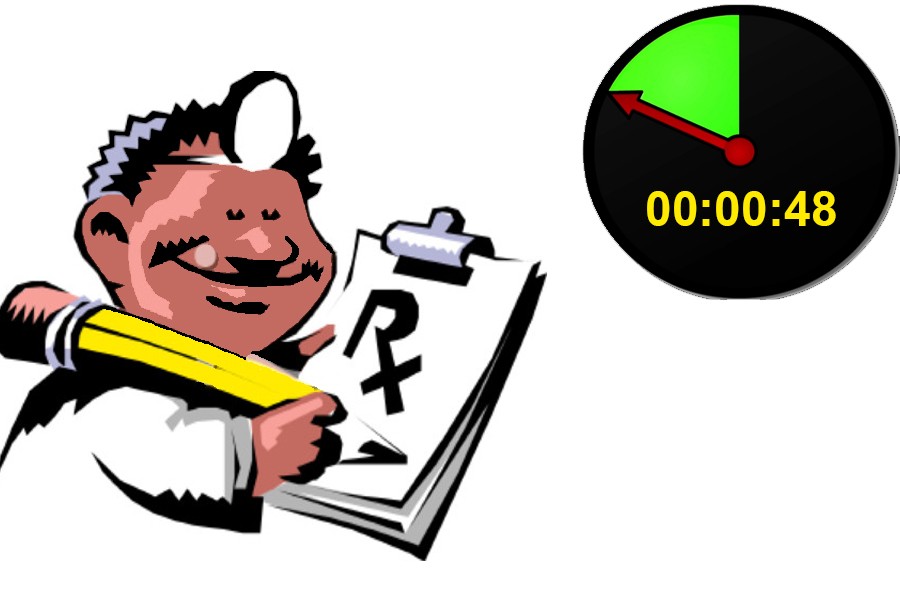Physicians in Bangladesh see patients for merely 48 seconds on average, according to a global study published in online British medical journal BMJ Open.
"Little can be achieved in less than 5 minutes unless the focus is largely on detection and management of gross disease," the researchers suggest in the study.
“An average of 5 minutes may be the limit below which consultations amount to little more than triage and the issue of prescriptions,” they added.
In 15 countries, including Sweden where it ranges up to 22.5 minutes on average, which represent around half of the world's population, the appointment lasted less than 5 minutes. And it lasted under 10 minutes in a further 25.
The study explains that shorter consultation times have been linked to poorer health outcomes for patients and a heightened risk of burnout for doctors.
In developed countries, average consultation time seemed to steadily increase: by 12 seconds a year to over 20 minutes in the US; and by just over 4 seconds a year to 10 minutes in the UK.
However, the UK started from a low baseline, and on current trends it will only reach a length of 15 minutes by 2086, the researchers point out.
Of more concern, the researchers say, is that consultation length seems to be shortening in some low and middle income countries, which may have important implications for population growth and the expansion of treatment options.
Several key findings emerged from the data analysis. Length of consultation was significantly associated with:
®National spend on healthcare per head of the population
®The number of primary care doctors per 1000 of the population
®Doctor burnout and 'depersonalisation'
®But it was not associated with:
®The number of consultations per patient in a given year
®The number of diagnostic tests requested by the doctor
®The number of attendances at emergency care departments
Shorter consultation length has also been associated with multiple drugs prescribed to a patient (polypharmacy), overuse of antibiotics, and poor communication with patients, the researchers add.
Although this is the largest international review of consultation length to date, the researchers highlight that the quality of the evidence was graded 'good' in less than half the included studies.
And differences between rural and urban, and public and private practices, were not taken into account, they said.


